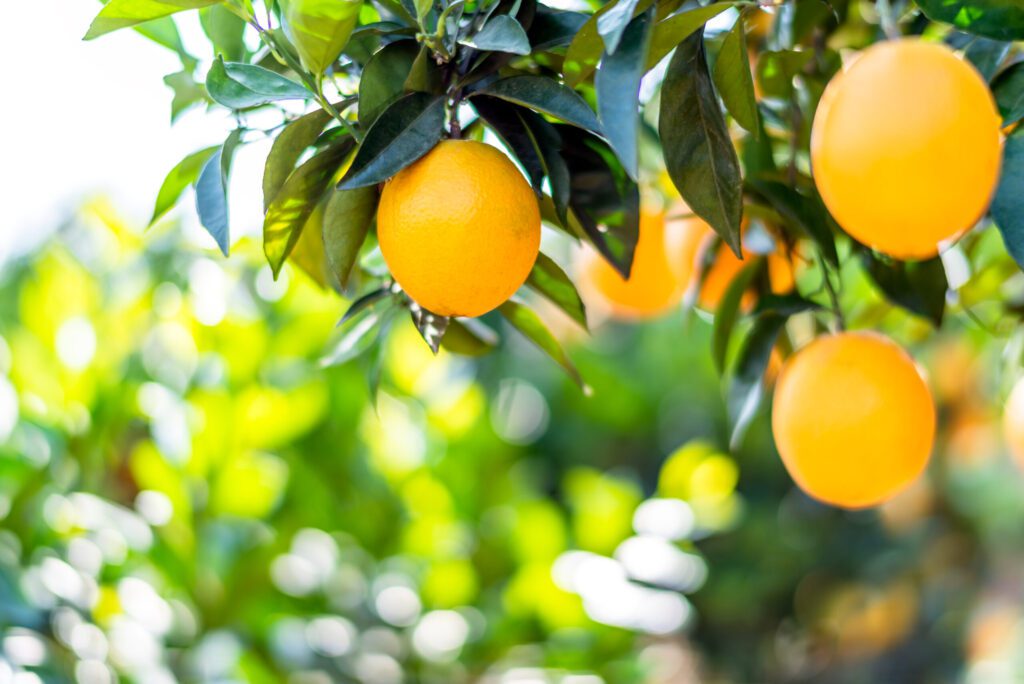Highlands County Youth Citrus Project Teaches Kids About the Industry
by HEATHER MACHOVINA
The Highlands County Youth Citrus Project (HCYCP) is all about teaching our youth the ins and outs of the Florida citrus industry. From growing, to picking fruit, to processing and juicing, they are educated on the whole process. All youth ages 8 to 18 are eligible to participate in this fun and educational project each year from April to February. Tree kits are available that include everything needed to grow a young citrus tree like a Florida citrus farmer would. Then, after about eight months, successfully grown trees are judged in the Highlands County Fair and sold at auction.
In April, all HCYCP participants pick up their tree kits to start their project.
“The program is financially sponsored by Florida citrus growers and other allied members of the citrus industry who donate money and goods to facilitate the program,” says John Gose, chair of the HCYCP Committee and general manager at Lykes.
“Lykes Bros. donates the citrus trees and pots, Harrell’s and Life Soils donate soil, Tree Defender donates the net coverings to prevent psyllid transmission of HLB, and Summer Irrigation donates PVC and caps to keep the nets in place.”
Each participant is responsible for potting up their tree, watering and fertilizing it, properly pruning it, and monitor the protective covering to keep their tree psyllid- and HLB-free over the next 8 months. This year, they are growing Pixie Mandarin on X639 rootstock.
The project also requires everyone to give a presentation on a pertinent subject relating to the citrus industry. Each kid has to research, learn, and compose an illustrated talk on a topic like how to market citrus, the effects of disease and weather on the industry, or advancements in technology.
“This is where they learn the most in the program,” says Alexis Cooper, 4-H program assistant at Highlands County Extension.
“I’ve had parents tell me that this area of the program helped their child grow both academically and socially because of the experience.” Furthermore, the project helps to instill a sense of responsibility and commitment in our youth and teaches them about time and money management.
Prior to the pandemic, kids also had the chance to attend up to four instructional classes or sessions within the industry, like a seminar or visiting a local citrus nursery or fertilizer plant. It is usually mandatory to attend two, but this year will be different due to COVID so they are working out the details for how this will take place to ensure the same amount of enrichment.
In years past, the citrus trees were treated with pesticides to help prevent citrus greening. About three years ago, they started using Tree Defender nets in the program, which provide a protective covering over the citrus tree while it is growing, preventing psyllids from spreading the disease to the tree. The first year the Tree Defender covers were used, citrus greening infection rates in the project dropped from 40-50% to zero. Last year was the second year of using Tree Defender nets, and again 0% HLB infection rate. This year’s participants have not had their trees tested for HLB yet, but they are anticipating no issues with citrus greening again.
The Wednesday before the Highlands County Fair begins, all eligible citrus trees are brought to the Ag Center and samples are taken from each tree to be tested for HLB by the Department of Plant Inspection. All HLB free trees are then judged at the Ag Center. The best two citrus trees are awarded Grand Champion and Reserve Champion, with the next best three awarded with blue, white, and red ribbons.
“All trees entered are available through a silent auction bid,” mentions Cooper, “except the top two picks of Grand and Reserve, which go to the live auction.”
There are several other youth citrus programs throughout the state. “Highlands County was the first to make HLB testing mandatory before entering in the fair,” Gose states proudly. “It’s important to control the spread of this disease by limiting the about of infected trees introduced into the groves.”
HCYCP introduces kids to the citrus industry and the challenges that come with being a farmer in one of the most important agriculture industries in Florida.
“We’ve had as many as 130 entries and as little as 30,” Gose says. “In the past, many trees didn’t make it to judging because about 40% were infected with citrus greening.” HLB is a serious problem for the industry and the past infection rate in this project shows it’s not easy to prevent, but growing with Tree Defender has helped more kids become interested in the program in recent years because they see there is an effective tool to help them get past this major hurdle in growing citrus.

